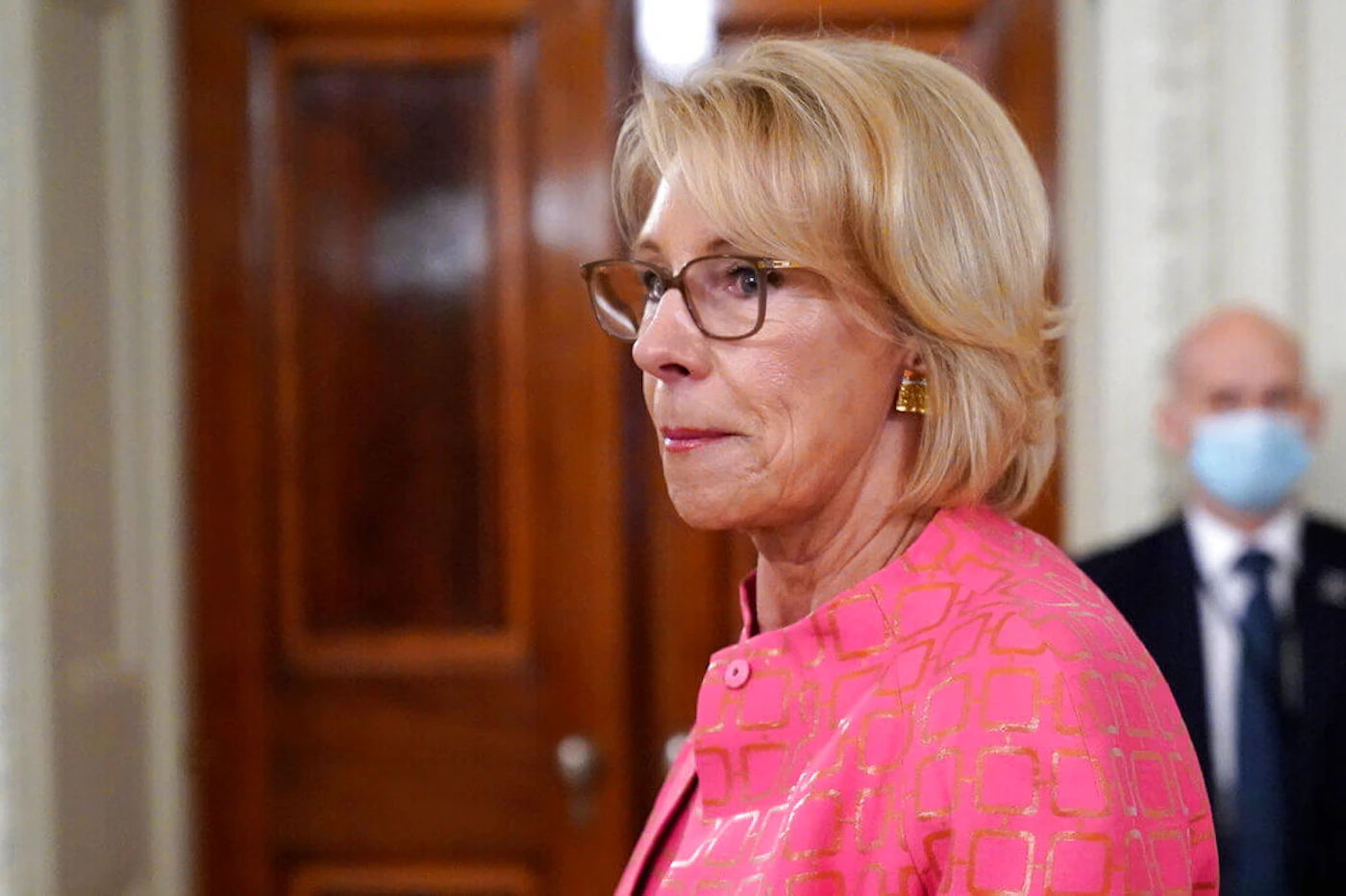Attorneys general from 17 states and the District of Columbia challenged the rule and say their fight will continue.
Controversial regulations from the Department of Education will take effect Friday, after a federal judge rejected a multi-state effort to prevent their implementation.
The new rules change the way schools and colleges report and investigate instances of sexual assault and harrassment. They will allow people accused of sexual assault to cross-examine their accuser and challenge evidence at a live hearing, reduce the scope of cases schools are required to investigate, and narrow the definition of sexual harassment, along with other changes.
Advocates vehemently opposed these new rules, and attorneys general from 17 states and the District of Columbia challenged them in court. They argued the new rules would discourage survivors from coming forward and block schools from investigating certain instances of sexual abuse.
Presidential candidate Joe Biden has promised that he will repeal the new laws if elected to office, according to POLITICO.
Because of these rules “fewer sexual harassment complaints will be filed, and schools will be less well equipped to protect their students’ safety and rid their programs and activities of the pernicious effects of sex discrimination,” the opposition wrote in their lawsuit.
But U.S. District Judge Carl J. Nichols didn’t agree, ruling that schools, colleges, and universities are allowed to investigate cases in accordance with their own codes of conduct or state law.
Education Secretary Betsy DeVos called the passage of the new laws “another victory for students,” according to the Washington Post and claimed that it “reaffirms that students’ rights under Title IX go hand in hand with basic American principles of fairness and due process.”
“Too many students have lost access to their education because their school inadequately responded when a student filed a complaint of sexual harassment or sexual assault,” said DeVos in a statement.
DeVos’ new rules have been under litigation for months. She originally issued her policy on May 6 and accused the Obama administration of turning campus disciplinary panels into “kangaroo courts” that were often too quick to punish students that had been accused.
The new rules overhaul of the definition of sexual harassment and require colleges and universities to investigate claims only if they are reported to certain individuals. Schools can also only be held accountable for mishandling a case if they acted with “deliberate indifference.” Opponents to the new rules argue that students should not be able to question one another through representatives during live hearings.
Challengers to the new laws were led by attorneys general in Pennsylvania, New Jersey, and California along with 17 other states backing the suit.
Pennsylvania Attorney General Josh Shapiro explained in a statement that the opposition is disappointed at the outcome of the case. He noted, however, that they will continue the fight.
“Our commitment to the right of every Pennsylvania student to safe and equitable education has not waivered, and our challenge to Secretary DeVos’s unlawful rule is not over, this is merely the first step in a long process,” he said.




